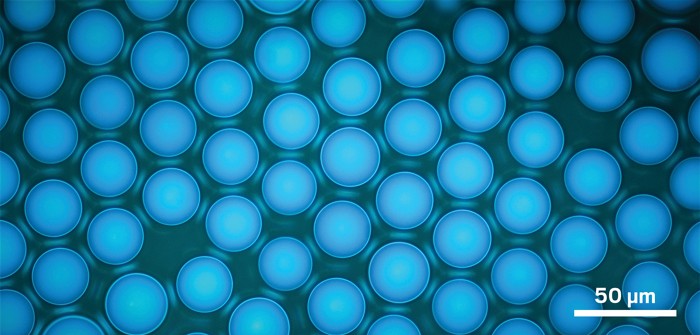Advertisement
Grab your lab coat. Let's get started
Welcome!
Welcome!
Create an account below to get 6 C&EN articles per month, receive newsletters and more - all free.
It seems this is your first time logging in online. Please enter the following information to continue.
As an ACS member you automatically get access to this site. All we need is few more details to create your reading experience.
Not you? Sign in with a different account.
Not you? Sign in with a different account.
ERROR 1
ERROR 1
ERROR 2
ERROR 2
ERROR 2
ERROR 2
ERROR 2
Password and Confirm password must match.
If you have an ACS member number, please enter it here so we can link this account to your membership. (optional)
ERROR 2
ACS values your privacy. By submitting your information, you are gaining access to C&EN and subscribing to our weekly newsletter. We use the information you provide to make your reading experience better, and we will never sell your data to third party members.
Chemical Sensing
Crabs gather data with high-tech skin
Flexible, lightweight skin is equipped with sensors, memory, and communications features
by Bethany Halford
May 6, 2018
| A version of this story appeared in
Volume 96, Issue 19
Scientists studying marine environments could soon get much more detailed information, thanks to a cutting-edge electronic skin that can be affixed to crabs. Electronic sensors for aquatic animals, particularly small critters, must be extremely lightweight so they don’t interfere with the creature’s normal behavior. Researchers at King Abdullah University of Science & Technology created an ultralightweight electronic skin that’s waterproof, flexible, and stretchable and contains sensors that can measure ocean salinity, temperature, and depth (npj Flexible Electron. 2018, DOI: 10.1038/s41528-018-0025-1). The device is also equipped with memory and Bluetooth communications technology so it can log and transmit the data it gathers. The researchers, led by Muhammad M. Hussain, built the electronic skin on a polydimethylsiloxane elastomer so that it wouldn’t degrade when exposed to microorganisms in the ocean. They superglued the skin, which is just 300 μm thick and has a length and width similar to the short side of a credit card, to a swimming crab (Portunus pelagicus, shown). Then they monitored the crustacean as it scuttled around the shore of the Red Sea. “We are still in the prototype phase,” Hussain says, “but we are working with others to further expand testing on a variety of animals such a dolphins and whale sharks.”



Join the conversation
Contact the reporter
Submit a Letter to the Editor for publication
Engage with us on Twitter